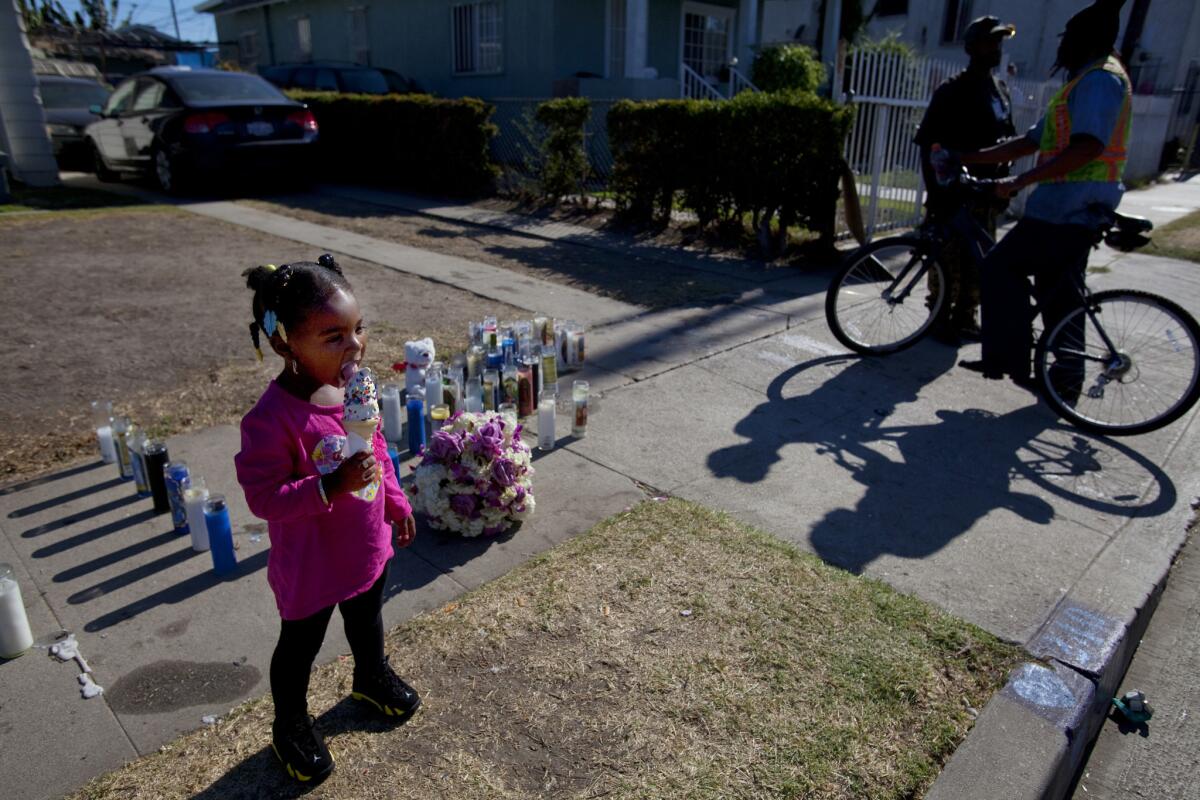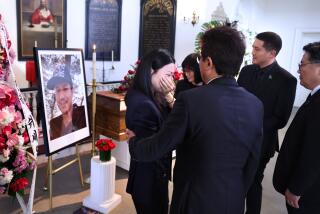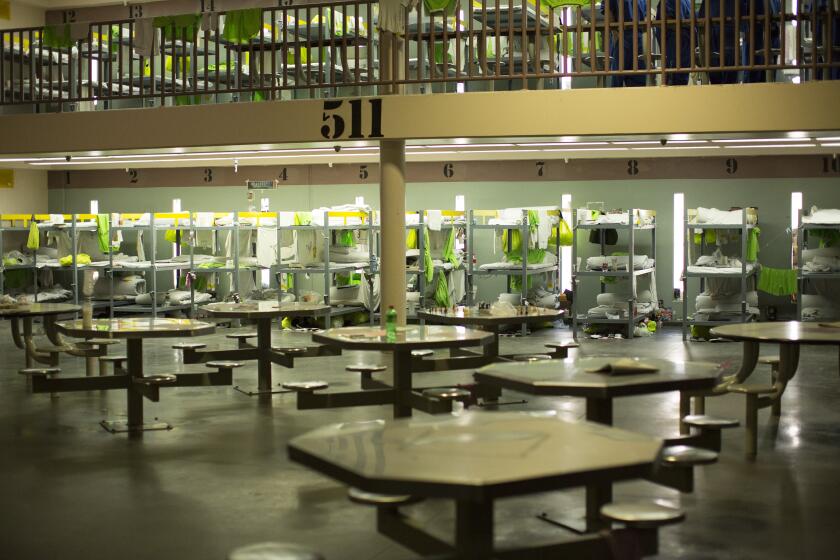After LAPD officers kill mentally ill man, activists demand answers

- Share via
Residents and community activists are demanding answers after the fatal shooting of a mentally ill man by Los Angeles police officers on Monday night.
Earl Ofari Hutchinson, president of the Los Angeles Urban Policy Roundtable, said Wednesday he has asked for a meeting with Police Chief Charlie Beck after he saw media reports about the shooting.
“One of the things we wanted to make clear to the chief was you really want to get ahead of the situation,” he said. “Anyone that has information about it -- given the fact that it is a priority item for the LAPD and for the community -- they need to come forward.”
On Wednesday, LAPD released a detailed narrative of the confrontation, alleging that the man tackled one officer and went for his gun before police opened fire.
LAPD Cmdr. Andrew Smith said two veteran gang officers were driving down West 65th Street on Monday night when they spotted Ezell Ford, 25, walking on the sidewalk. An LAPD statement, citing a preliminary investigation, said the officers got out of their car and tried to talk to Ford but that he “continued walking and made suspicious movements, including attempting to conceal his hands.”
When the officers got closer, Smith said, Ford “whirled around and basically tackled the lead officer.” Ford reached for the officer’s gun, Smith said, prompting his partner to open fire. The officer on the ground reached for his backup weapon and also fired, Smith said.
Ford was handcuffed -- as is routine in such shootings, according to the LAPD -- and paramedics were called to the scene. He died later at a hospital.
But some who lived in the area questioned the police account. A friend of Ford’s family told The Times that she witnessed part of the incident and saw no struggle between the officers and Ford.
Dorene Henderson, 57, said she had crossed the street in front of Ford when she heard someone yell, “Get down, get down.”
Henderson said one officer was out of the car when she heard a gunshot. She said neighbors began yelling at the officers, “He’s got mental problems.”
Henderson said she saw the other officer get out of the driver’s side of the police car, and that she then heard two more shots.
A man interviewed by KTLA-TV said Ford was complying with officers or had been subdued at the time of the shooting.
These accounts prompted a backlash on social media against the LAPD, with some comparing Ford’s death to the shooting of a young, unarmed black man in Ferguson, Mo., that has sparked ongoing protests and national headlines. Some called on Facebook for a rally outside LAPD headquarters on Sunday.
Smith cautioned that the LAPD’s investigation into the incident was ongoing, as are separate reviews by the department’s inspector general and the Los Angeles County district attorney’s office. But, he said, “there is a lot of misinformation out there.”
“He didn’t comply with any of the officers’ instructions,” Smith said. “He was grabbing the officer’s gun with the officer underneath him.”
Coroner’s officials have yet to release details about Ford’s wounds.
On Wednesday afternoon, friends and family gathered at the site where Ford had been shot in the Florence area of the city. Blue and white candles marked the location.
The graffiti-pocked neighborhood has one of the highest rates of violent crime in Los Angeles County, according to crime reports analyzed by The Times’ crime database.
A portrait emerged of Ford as a troubled young man who was well known in the neighborhood as struggling with mental health problems.
Los Angeles County court records show Ford had convictions for marijuana possession and illegally possessing a loaded firearm. His most recent conviction came in January, when he was put on three years’ summary probation for trespassing in Long Beach.
Ford’s parents, who said they were still seeking information about their eldest son’s death, described him as an active, social boy who dreamed of becoming a basketball star but suffered from mental illness. When he was 18, they said, he began to withdraw, becoming less social.
“He constantly kept moving around and would look at you like he didn’t trust you,” said Ford’s father, Ezell Ford Sr.
Ezell Ford was diagnosed with depression, his parents said, and later schizophrenia and bipolar disorder. As he got older, his father said, he began taking medication that made him less active.
“I was sad,” his father said. “Why was my son going through this?”
Most recently, Ezell Ford’s parents said they knew their son as a drifter. He’d go on long walks from his house, sometimes to his grandmother’s home in the West Adams area. Once, his parents said, he walked all the way to Long Beach for no apparent reason.
Residents in the area and police officers knew about Ezell Ford’s mental health, his parents said.
“At the end of the day, he was a good kid,” his father said.
More to Read
Sign up for Essential California
The most important California stories and recommendations in your inbox every morning.
You may occasionally receive promotional content from the Los Angeles Times.













